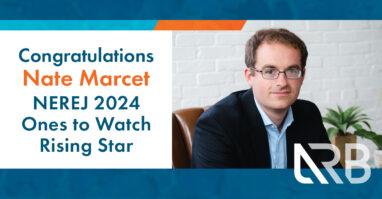Charitable trusts can help you reduce income taxes, lower estate tax, and protect your assets while incorporating your charitable goals into your estate plan. And depending on the type of trust, you or your beneficiaries may benefit from a tax-advantaged source of revenue.
Charitable lead trusts and charitable remainder trusts are commonly used in estate planning. Both types of trusts are irrevocable, and the most significant difference between the two is who receives the income stream in the form of annual payments during the trust’s life and who receives the remaining assets when the trust’s term ends.
How do charitable trusts work?
In most cases, both tangible and intangible assets, such as cash, business interests, securities, art, and real estate are acceptable forms of charitable trust principle. Over the life of the charitable trust, if all goes according to plan, the trust principal will appreciate in value and may generate income. The trust instrument or document will provide for how the annual payments will be structured and how the residual property in the trust at the end of the trust’s term will be disbursed.
In general, annual payments can be predetermined when the trust is established or calculated each year based on changes in the trust’s value. If the trust is set up as an annuity trust, it will pay a fixed percentage of its initial value each year until termination. Conversely, if the trust is set up as a unitrust, it will pay a fixed percentage of its value, redetermined annually, until termination.
What is a charitable lead trust?
With charitable lead trusts, the annual payments are distributed to the charity during the trust’s term, and the remainder interest is disbursed to non-charitable beneficiaries when the trust ends. The non-charitable beneficiaries will not be liable for income tax on the remainder interest they receive, as it is considered a gift.
Depending on the way the trust is set up, you or the trust itself may be liable for income tax each year on investment earnings within the trust. Tax implications differ for grantor and non-grantor trusts, as non-grantor trusts are treated as separate entities.
What is a charitable remainder trust?
With charitable remainder trusts, you or your non-charitable beneficiaries receive the annual payments for a specific term, and the remainder interest is paid out to charity when the trust ends. Your non-charitable beneficiaries may owe income tax on the annual payments they receive.
Depending on the type of income generated by the trust, it may be subject to ordinary income or capital gains tax rates. If you or your spouse are a beneficiary of a charitable remainder trust, you will not owe gift tax, nor will your lifetime estate tax exemption be affected.
How do rising interest rates affect gift-giving?
When you incorporate gift-giving strategies into your estate plan, it’s important to consider increasing interest rates. As the grantor of a charitable remainder annuity trust, you receive an up-front tax deduction for the value of the remainder. And the future value of the donated asset is assumed to be worth more when a higher interest rate is used, which means your deduction will be higher.
However, as a charitable lead annuity trust grantor, you won’t fare as well when interest rates are on the rise. While you can claim an immediate write-off for the present value of the charity’s interest, the present value of the charity’s interest decreases as interest rates rise.
Contact Albin, Randall & Bennett
ARB’s Individual Tax & Private Client Services Teams are here to help. We consider all generations of the family in helping our clients achieve their goals for their legacies, whether through trust creation, family foundations, or strategic generational wealth transfers.
My team collaborates with family offices and their attorneys, wealth advisors, and insurance specialists to facilitate solutions to complex family tax issues. If you are ready to discuss your trust and estate planning strategy, contact me today.
by Dan Doiron, CPA, CVA
Dan Doiron has been in public accounting since his college internship with ARB in 1986. He has been a Principal since 1996 and works extensively with all types of clients to solve their compliance and tax planning issues. Dan was the May 1987 State of Maine Gold Medalist for earning the highest scores on all four parts of the CPA Examination. He is the Practice Leader of both ARB’s Business Tax Services Team and ARB’s Private Client Advisory Services Team.





